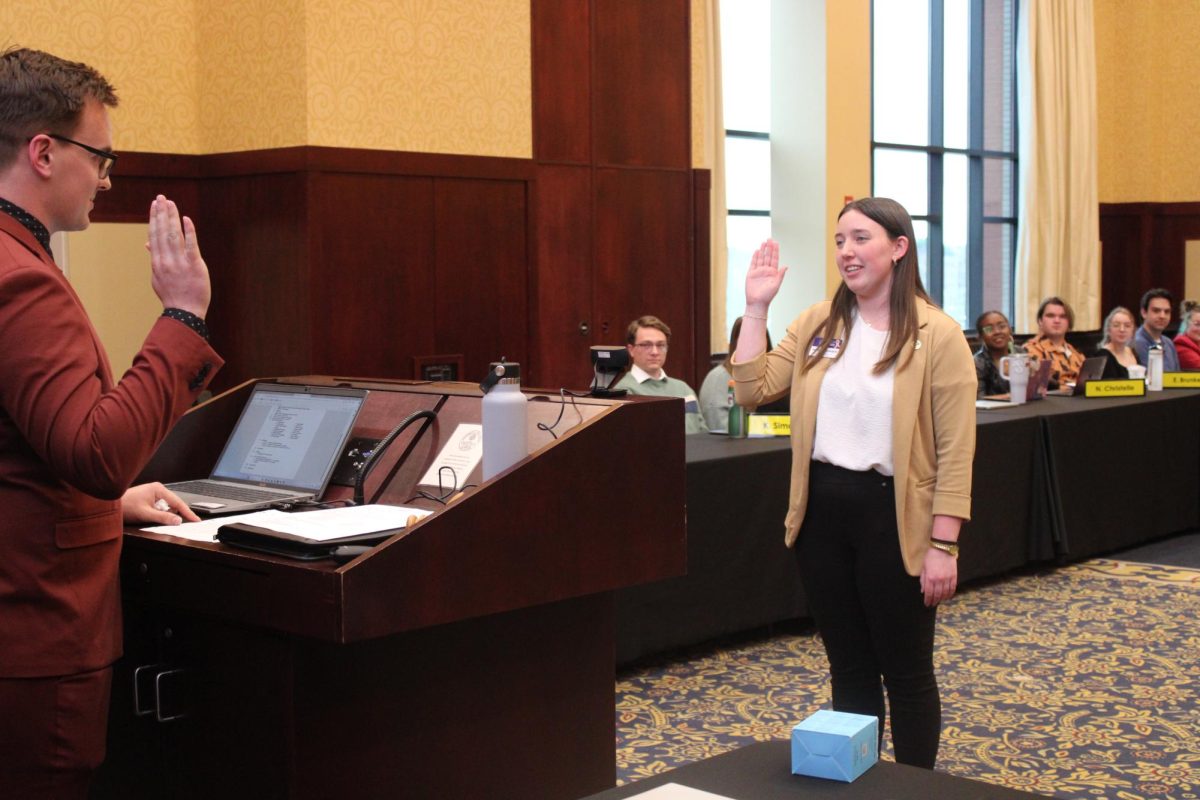 Nicole Robinson
Nicole RobinsonSophomore Ryan Stone is not looking forward to flu season.
“I know that I don’t have the time to get sick and miss classes,” he said.
Stone is just one of many concerned by the nationwide flu vaccination shortage this year.
After receiving a shot last year, he said he is concerned that not being able to be vaccinated will be dangerous while living in the residence halls.
Clinics around the country have been turning away patients looking for their annual vaccinations since early October, when federal authorities learned that Chiron Inc., the British company that produces almost half the U.S.’s vaccinations, would only be able to provide half the expected number of vaccinations because of British regulatory action.
Since then, public health officials have been preparing the public for the shortage. Many states, including Wisconsin, have limited the vaccine’s availability to the elderly and to at-risk patients whose immune systems are weak.
The shortage has left many clinics without any vaccinations at all.
“We don’t have a supply right now,” Student Health Services Director Laura Chellman said.
Chellman explained that although Health Services is without vaccinations for the time being, there is a chance that in coming weeks some vaccinations could become available.If such a supply became available, SHS would be allowed to administer shots to students who fit the state’s definition of at-risk patients, Chellman said.
Federal officials announced Monday that between 2.5 million and 3 million doses should become available nationwide each week for the next six to seven weeks.
Chellman suggested maintaining a healthy lifestyle to protect the body from the flu.
“Do what you can to stay healthy,” she said.
Beyond basic nutritional and habitual choices, avoiding contact with infected people is a good way to avoid contracting the virus, Chellman said.
She added this includes covering the mouth and nose while sneezing and coughing.
Flu season typically lasts from November to March, although there is already a confirmed case in Wisconsin.
Symptoms include aches and pains, a dry cough, a fever and a headache, Chellman said.
She also suggested people sick with the flu do not attempt to continue with their daily routine, for their sake and for the sake of others.
“If you are sick,” Chellman said, “stay home.”






